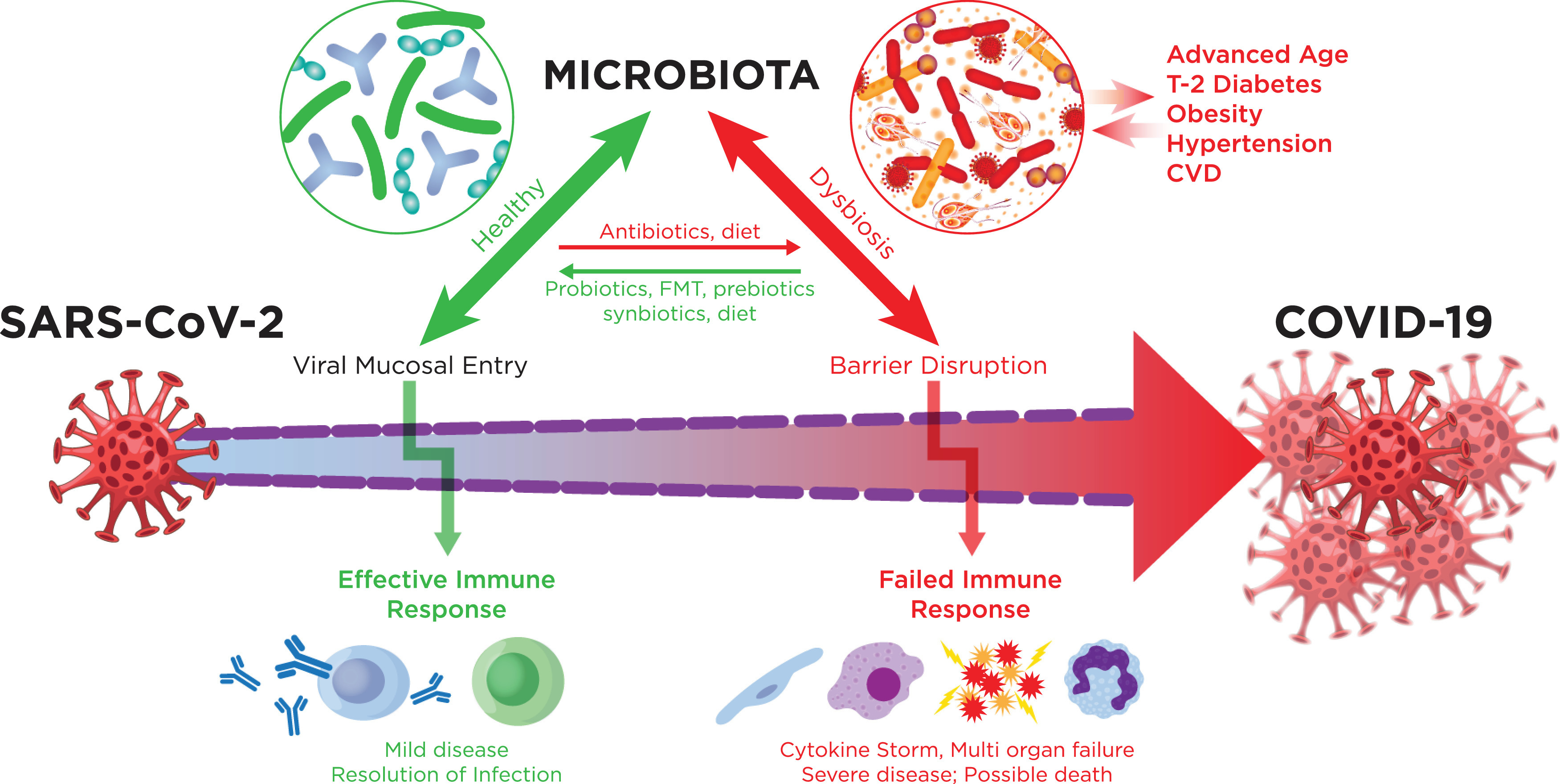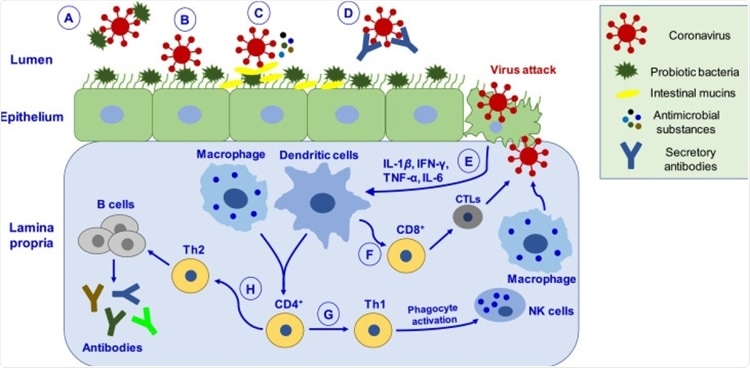Probiotics may be beneficial in COVID-19 treatment
Probiotics are live
microorganisms that confer health benefits when consumed in adequate amounts,
including enhanced immune activity and the clearance of respiratory tract
infections. (FAO and WHO, UN).
Probiotics could be used as an adjunctive treatment against COVID-19.
Role of probiotics to
combat COVID-19

It is evident that probiotics can reduce the incidence and severity of diseases, suggesting their promise for treating or preventing COVID-19. Probiotics could help prevent COVID-19 by maintaining the human GI or lung microbiota because dysbiosis plays a major role in the susceptibility of people to infectious diseases.
Note: More in vitro and clinical studies are required to examine the potential preventive and curative effects of probiotics against SARS-CoV-2 infection.
Doctors Liked to Read More
Probiotics are “nonpathogenic
living microorganisms providing various health benefits to the human host.”
These include Lactobacillus and Bifidobacterium genera
of bacteria, since these bacteria restore the balance of microbes in the gut.
Many findings indicate that such
probiotics maintain a healthy host immune system that helps the body rebound
after a respiratory viral infection in animal models. Not only did these
interventions enhance the health of the animals, but lowered the viral load in
their lungs and boosted survival rates.
Probiotic strains may help
prevent infection, and enhance immune function to reduce the impact of viral
infections, especially COVID-19.

( A ) Probiotic bacteria can
hinder the adsorption process via directly binding to the virus and inhibiting
entry into epithelial cells.
( B ) Binding of probiotic
bacteria to the epithelial surface can cause steric hindrance and block the
virus’s attachment to the host cell receptor.
( C ) Probiotic bacteria
releases antimicrobial substances (such as bacteriocins, biosurfactants, lactic
acid, hydrogen peroxide, nitric oxide, organic acids) and intestinal mucins
from mucosal cells, which can effectively inhibit virus proliferation.
( D ) Virus neutralized by
secretory antibodies like IgA.
( E ) Upon virus attack in
epithelial cells, probiotics mediate their antiviral effects by eliciting
immune responses by activating macrophages and dendritic cells.
( F ) Activation of immune
response leads to differentiating CD8 + T lymphocytes into CTLs, capable of
destroying virus-infected cells.
( G ) CD4 + T lymphocytes
cells differentiate into Th1, which activates phagocytosis through NK cells and
macrophages, promoting pathogen killing.
( H ) CD4 + cells differentiate into Th2 cells, which induce B-cells’ proliferation that produces antibodies like IgA, IgG, and IgM. CTLs, cytotoxic T-lymphocytes; Th1, T-helper cells type 1.
Probiotics can modulate host
immune responses and counteract the “cytokine storm” produced during COVID-19
infection.
A combination of three Lactobacillus strains
induced an antiviral response, increasing the production of inflammatory
cytokines and up regulating interferon regulatory factor-7 and other
immunomodulatory genes.
·
Probiotics boost the immune system, enhance the
mucosal barrier function and inhibit bacterial adherence and invasion capacity
in the intestinal epithelium by being in a direct antagonism with pathogenic
bacteria.
·
The gut-lung axis is involved in the
pathogenicity of bacterial and viral infections, as the intestinal microbiota
boosts the alveolar macrophage activity, thus having a protective role in host
defense against pneumonia.
Along these lines, current
clinical evidence connects gut, lung, and brain as an entity with communication
mediated through complex neural, immunologic inflammatory and neuroendocrine
networks, the so called gut-brain-lung axis.
https://pubmed.ncbi.nlm.nih.gov/33484986/
http://www.bmrat.org/index.php/BMRAT/article/view/646
https://www.sciencedirect.com/science/article/pii/S0271531720305984
https://www.frontiersin.org/articles/10.3389/fnut.2020.614986/full
https://www.news-medical.net/news/20210217/Probiotics-may-be-beneficial-in-COVID-19-treatment.aspx
Note: For informational purposes only. Consult your
textbook for advising your patients.




Comments
You must login to write comment